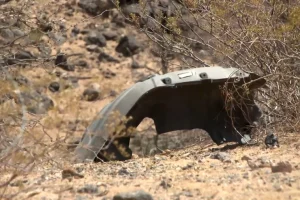Facilities Management responding to fluctuations in weather
February 9, 2018
As Pittsburgh temperatures have been fluctuating, Robert Morris University’s Facilities Management has been planning to plow, spread salt on roadways and answer students’ calls.
RMU Colonial Central is an office in Facilities Management close to the Braddock Residence Hall where all maintenance phone calls are answered. The office has a 24/7 hotline but is open every weekday from 6 a.m. to 10 p.m.
“We’re here to service the students. We are 24/7. We answer the phones 24/7, so they can call at any time,” said Andrea Plummer, director of Administrative Services.
Colonial Central answers the phone call and, with high-priority issues like snow and ice, sends Nathan Bickerstaff, assistant director of Facility Services, with the maintenance employees for shoveling cars out of parking lots and spreading salt on campus.
“We’re more than willing to go and shovel them out. And with that, the sooner the better. You know, if they’ve got somewhere to be, maybe call the night before,” said Bickerstaff. “We’ll make sure that they can get out.”
Back in 2014, RMU had its largest amount of snowfall with 27 inches. It has not risen to that in 2018.
“Currently we’re only at 13 ½ inches of snow for this year. Our average, Pittsburgh area, is about 27 (inches),” said Bickerstaff.
In the warm seasons, Bickerstaff shops for the best price on salt. RMU’s local dealer is one from Manacca, Pa. A price has been set in a contract, and the salt is then kept on campus until it is needed.
“The way we typically purchase our salt is, we do an agreement that happens usually no later than October that guarantees a set amount that we can buy out to,” said Bickerstaff. “We always set that much higher than we typically use, but it’s at least available to us in case, and that helps us get good pricing as well.”
There are two different types of salt. A uniformly cut salt with a green color is placed on sidewalks because it is easier to spread on sidewalks. ATSM bulk salt is spread on the roadways. The purpose of salt is to lower the freezing point of water so that when the temperatures lower, it does not instantly turn to ice.
“It could be raining, but if the ground temperature is colder than say the freezing point, especially as cold as we did have it, as soon as you get some freezing rain, as soon as it hits the ground it turns to ice,” said Bickerstaff. “So, those are all factors that determine when, where and how much salt we have to spread.”
RMU Facilities Management keeps an eye on the weather forecast to create a plan for when, where and how much salt they will spread on campus. They also decide if they need to plow or sweep the sidewalks and roadways.
“We base our attack on a storm, depending on how cold, how much snow is coming, and that determines how early we come in, how late we stay and the extra staff we have to call in,” said Bickerstaff. “Typically, we’ll broom sidewalks if we can. If it’s too much material for broom, we will plow. Our only options for roads is to plow. But if there’s any accumulation that can be lessened by plowing or brooming, we will do that first to try to get as much life out of our salt as possible.”
Plummer and Bickerstaff had advice for students to follow as the weather changes.
“Just give yourself extra time. I mean, you hear that on the morning news when you’re getting ready to go off to work,” said Plummer. “They say just give yourself some extra time. It’s icy out there. So that would be my piece of advice for the students.”
Bickerstaff warns to leave early, wear the correct clothing and watch out for machinery.
“We feel the operators really take their time to make sure that we don’t affect students,” said Bickerstaff. “We try to stay out of their way, but sometimes you may get bottleneck on a walkway … so just keep an eye open for where you’re walking, what you’re wearing and who may be coming towards you in a piece of equipment.”
For more information, visit Colonial Central here.












